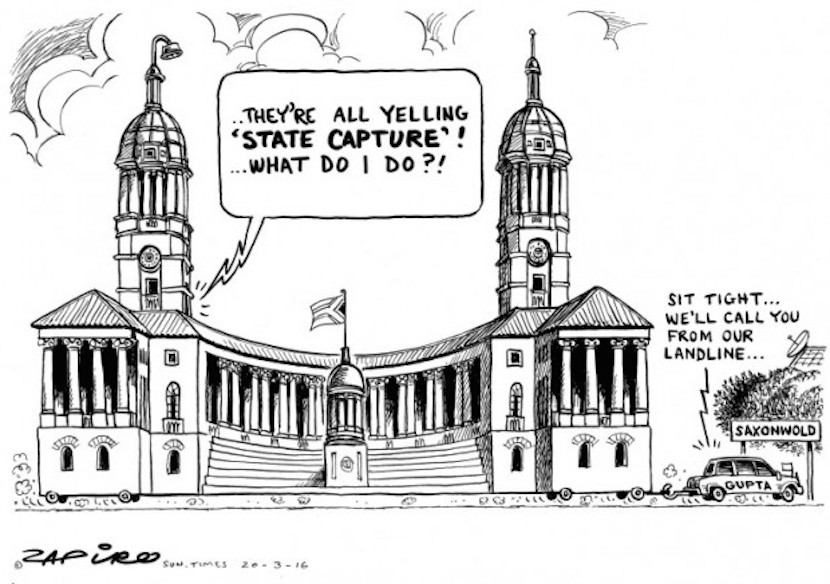Introduction
The mental model of State Capture represents a phenomenon where influential individuals or groups exert disproportionate control over the state institutions and decision-making processes. It occurs when private interests manipulate or exploit governmental entities for personal gain, undermining the public’s best interests. This concept has deep roots in human psychology and is prevalent in various aspects of our lives. In this blog post, we will explore the relevance of State Capture in decision-making, its occurrence in personal, business, and public policy contexts, the psychological biases that contribute to it, strategies to identify and avoid falling prey to it, and the implications of State Capture on society.
Understanding State Capture
State Capture refers to the phenomenon where powerful individuals or groups exert undue influence over the decision-making processes and institutions of the state. This influence may be achieved through bribery, corruption, lobbying, or other means that compromise the integrity of public institutions. State Capture undermines the principles of democracy, equality, and fairness, leading to biased decision-making and policies that prioritize private interests over the public good.
Psychological Anchoring of State Capture
State Capture is deeply rooted in various psychological factors and biases. One such factor is the human inclination to pursue self-interest and maximize personal gain. Individuals or groups involved in State Capture exploit this psychological bias, using their power and influence to shape decisions in their favor.
Another contributing factor is the psychological bias of social proof, where individuals tend to follow the actions and decisions of influential figures or groups. This bias can result in the consolidation of power in the hands of a few, allowing them to manipulate state institutions and decision-making processes.
Examples of State Capture in Decision-Making
Personal Life Decisions:
Consider a situation where an individual seeks medical treatment and falls victim to State Capture. Pharmaceutical companies may influence healthcare policies and regulations, leading to overpriced medications and limited access to affordable alternatives. The individual’s decision-making is compromised as they are left with limited options, impacting their health and financial well-being.
Business Scenarios:
In the business world, State Capture can occur when powerful companies or industry leaders manipulate government regulations to gain unfair advantages. For example, an energy company may collude with government officials to secure favorable contracts or subsidies, stifling competition and hindering the growth of renewable energy alternatives. Such capture limits innovation, market fairness, and ultimately harms consumers.
Public Policy-Making:
State Capture has far-reaching implications in public policy-making. Powerful interest groups may exert influence over lawmakers, leading to policies that serve their narrow interests rather than the broader public good. This can result in regulatory loopholes, weakened environmental protections, or policies that perpetuate income inequality. The public’s voice is stifled, and decisions are made that go against their best interests.
Mental Biases and Underpinnings
State Capture is fueled by cognitive biases such as confirmation bias, where decision-makers seek information that supports their preconceived notions or aligns with the interests of those capturing the state. Additionally, the bias of reciprocity plays a significant role as individuals within the state apparatus may feel indebted to those who have provided favors or benefits.
Identifying and Avoiding State Capture
To protect against State Capture and ensure more objective decision-making, consider the following strategies:
Promote transparency and accountability: Implement robust systems to disclose financial contributions, lobbying activities, and conflicts of interest. Strengthen regulatory frameworks that discourage undue influence and hold decision-makers accountable for their actions.
Encourage civic participation: Foster an engaged citizenry by providing opportunities for public participation in decision-making processes. This includes promoting open dialogues, soliciting public input, and facilitating mechanisms for citizens to express their concerns.
Strengthen institutional independence: Safeguard the autonomy and independence of state institutions. Implement checks and balances to prevent undue influence, including effective whistleblower protection mechanisms and strong ethics codes.
Enhance media freedom and investigative journalism: Support a free press and investigative journalism that can uncover and expose instances of State Capture. Independent media plays a crucial role in holding those in power accountable and informing the public about potential abuses of authority.
Conclusion
State Capture poses a significant threat to democratic decision-making and the well-being of society as a whole. By understanding its psychological underpinnings, recognizing its occurrence in personal, business, and public policy decisions, and implementing strategies to counteract it, we can safeguard the integrity of our institutions and ensure decisions that prioritize the public interest. Awareness, transparency, and active avoidance of State Capture are paramount to maintaining a fair and just society where decisions are made in the best interests of all.
